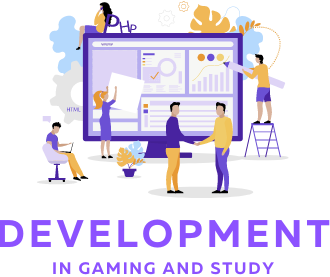Online gaming has undergone a dramatic transformation, evolving from a niche activity into a global cultural phenomenon. Today, it connects millions of people worldwide, offering a platform for entertainment, competition, and social interaction. The rapid development of internet infrastructure, gaming hardware, and software has allowed online gaming to become more immersive and accessible, attracting players from all walks of life. As technology has advanced, so too has the gaming experience, with increasingly sophisticated graphics, expansive virtual worlds, and deeper social integration.
The history of http://acorn-ma.co.uk/ dates back to the early 1990s, when games like “Doom” and “Warcraft” introduced the concept of multiplayer modes, allowing players to compete against each other over local area networks (LANs). These early games laid the groundwork for the online gaming experiences that would soon follow. However, it wasn’t until the late 1990s and early 2000s, with the advent of broadband internet, that online gaming began to truly take off. Popular titles like “World of Warcraft” and “Halo 2” allowed players to connect with one another across vast distances, creating virtual worlds where players could explore, battle, and collaborate in real-time. These games shifted the focus of gaming from isolated single-player experiences to socially connected multiplayer environments.
The appeal of online gaming is not just about playing games; it’s about the social interaction it fosters. Online games today have become community hubs, where players interact with friends and strangers, form teams, and engage in shared activities. Games like “Fortnite,” “Minecraft,” and “Apex Legends” have capitalized on this trend, incorporating voice chat, social features, and collaborative gameplay. Players can now build meaningful relationships with others, and for many, online gaming has become an essential part of their social lives. Whether it’s teaming up with friends to take on a challenge or participating in in-game events like concerts or festivals, the social aspect of gaming has helped to bridge geographical distances and create global communities.
Another aspect of online gaming’s cultural impact is the rise of esports. What began as informal competitions between friends has grown into a multibillion-dollar industry. Esports tournaments now attract millions of viewers, with professional gamers and teams competing for substantial cash prizes and sponsorships. Games such as “League of Legends,” “Dota 2,” and “Counter-Strike: Global Offensive” have become mainstays of the esports world, drawing attention from fans, advertisers, and even television networks. Platforms like Twitch have allowed gamers to broadcast their gameplay to a global audience, creating new opportunities for content creators to connect with fans and make a career out of gaming.
Looking forward, the future of online gaming is exciting and filled with possibilities. Emerging technologies such as virtual reality and cloud gaming will further enhance the immersive nature of gaming, offering even more ways for players to experience virtual worlds. As online gaming continues to evolve, it will undoubtedly remain a central part of the entertainment landscape, continuing to connect people, foster communities, and inspire new forms of digital interaction.
